Call for concrete international intervention in Sudan amidst ‘secretive’ Jeddah talks
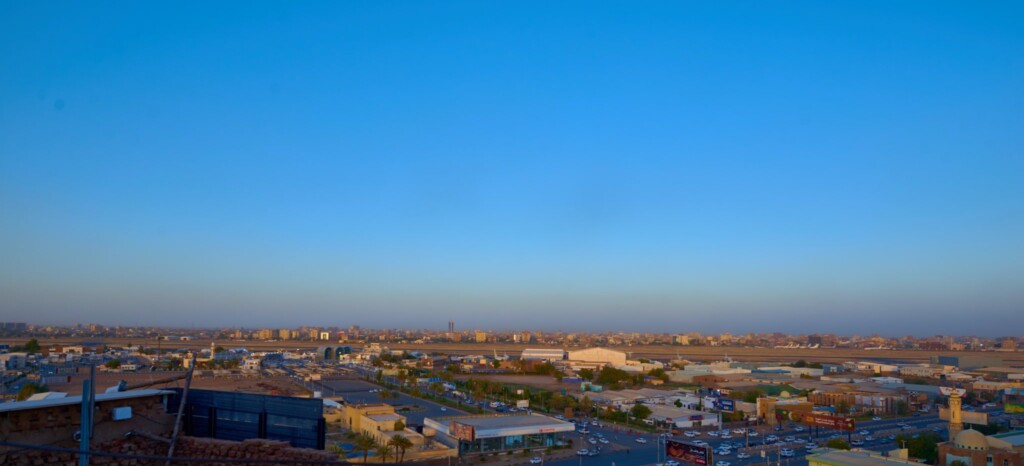
Photo from Khartoum Airport only days before the violence erupted (Sari Omer)
JEDDAH / KHARTOUM – May 9, 2023
Representatives of the Sudan Armed Forces (SAF) and the Rapid Support Forces (RSF) are engaging in preliminary talks in Saudi Arabia. International parties closely follow the talks, which have been labelled as a ‘secretive’ ‘check-the-box exercise’ by Sudanese analysts.
The Saudi Ministry of Foreign Affairs said in a statement yesterday that representatives of SAF and RSF have been engaging in preliminary talks in Jeddah since Saturday.
The talks, mediated by Saudi Arabia and the United States of America, aim to achieve an effective short-term ceasefire and set a timetable for more extensive negotiations to reach a permanent cessation of hostilities.
The talks between the two parties will continue in the coming days, the Saudi Foreign Ministry said. It urged the two parties to respect the existing ceasefire to maintain “a positive atmosphere” for the current preliminary talks.
Osman El Nujeimi, a political analyst supporting the RSF, told Radio Dabanga that the ongoing negotiations are indirect and aim to stabilise the truce and to open humanitarian corridors.
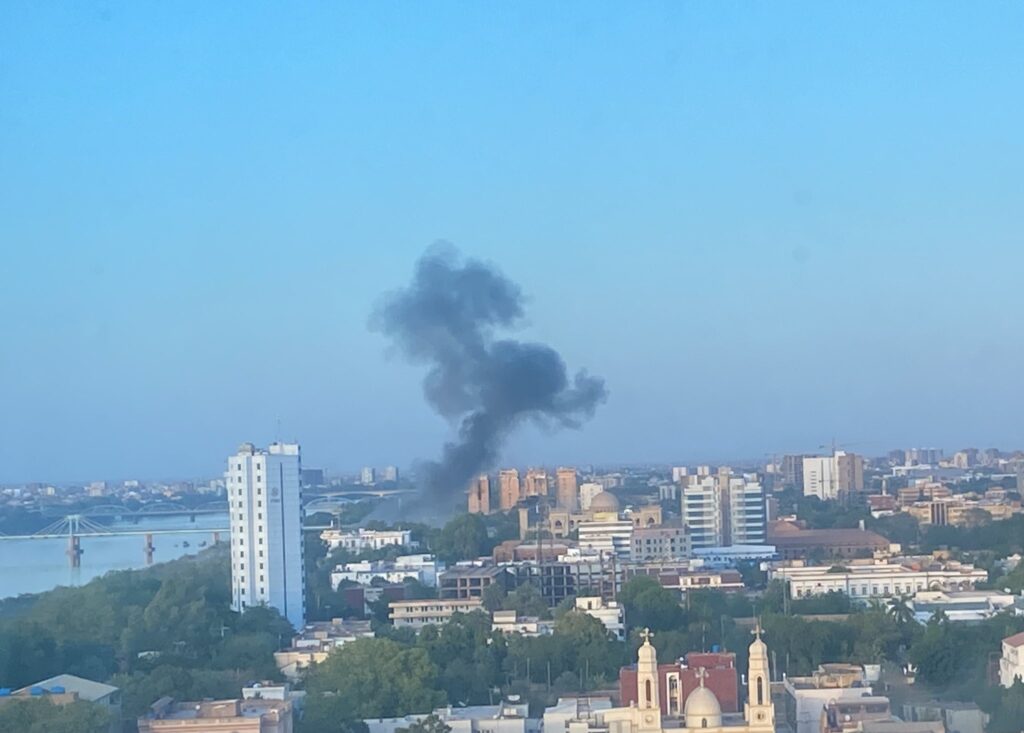
SAF demands
In an interview with the Egyptian Al Qahera TV channel yesterday evening, SAF Commander Lt Gen Abdelfattah El Burhan said that any ceasefire in Sudan needs “proper foundations” and that the army is seeking to lay real a foundation for a cessation of hostilities through the Saudi initiative in Jeddah.
This ‘foundation’ is based on three demands, the first of which is the unconditional withdrawal of the RSF from Khartoum, “otherwise there can be no talk of a ceasefire”.
Secondly, the army demands an extension of a humanitarian truce and an end to any military operations by the RSF so that “safety can be restored”.
It reportedly also demanded the integration of the RSF into the Sudanese army within two years.
It is unclear how the RSF responded to these demands.
El Burhan stated that the SAF “welcome any initiative that spares the blood of the Sudanese and removes the possibility of a civil war” and stated that the Sudanese delegation to Jeddah “represents the government of Sudan” and not just the military institution, as the delegation includes some diplomats.
In comments posted by the Sudanese El Jareeda newspaper this morning, Sudanese wondered why the language of El Burhan changed. “His style was characterised by a peaceful tone, and he avoided all hostile expressions,” Sabah El Hasan wrote.
“The apparent meaning of the matter is that the commander and his army indirectly say that they will continue the negotiation process in Saudi Arabia. […] It means that the SAF are at a great impasse in this war they were forced to start by the affiliates of the defunct [Al Bashir] regime and despite being unprepared.”
El Hasan also believes that El Burhan is trying “to tell the Sudanese and the international community that it was the SAF that decided to stop the violence and not to bow to the desire of the Islamist supporters of the defunct regime to continue the war”.
Lack of objectivity and insight
Kholood Khair, broadcaster and founding director of the Confluence Advisory think-and-do-tank in Khartoum, said yesterday that “we have little objective reporting on the Jeddah talks”.
She lamented that the talks are taking the same form (“secretive, exclusive”), the same function (“to engender power sharing between military factions for ‘stability’”), and have the same ‘political engines’ involved (Washington DC and Riyadh) as the first phase “of the failed political process that gave us the Framework Agreement and led us here”.
“Just for kicks – could we try something different? Perhaps include civilians, not legitimise SAF/RSF further, ensure there’s support from an international critical mass…?” she wrote on social media.
Sudanese politician Amgad Fareid El Tayeb, who served as chief of staff under former Prime Minister Abdallah Hamdok and is now CEO of the Fikra think-tank in Khartoum, echoed these sentiments in an opinion piece for The Africa Report.
‘The secrecy regarding the substance and content of Jeddah’s arrangements (…) makes everyone suspicious of it’
– Amgad Fareid El Tayeb
“The secrecy regarding the substance and content of Jeddah’s arrangements – or rather the absence of such substance – makes everyone suspicious of it,” he wrote.
“The US and Saudi Arabia continue to keep the process to themselves and appear unwilling to engage or coordinate with other regional and international actors involved in the situation.”
“They are evidently more concerned with having full ownership of the process rather than its actual success – a typical attitude of US Assistant Secretary of State for African Affairs Molly Phee, who is running the show in Jeddah and who previously pushed two US envoys to Sudan to resign because they disagreed with her administration of US policy towards Sudan.”
“There is an increasing sense that the continuation of the same strategy, including involvement of the same US and [Saudi] representatives who were part of the previous botched political process, indicates that Washington and Riyadh do not truly believe that these negotiations will result in anything”.
El Tayeb likened the negotiations to a “check-the-box exercise”.
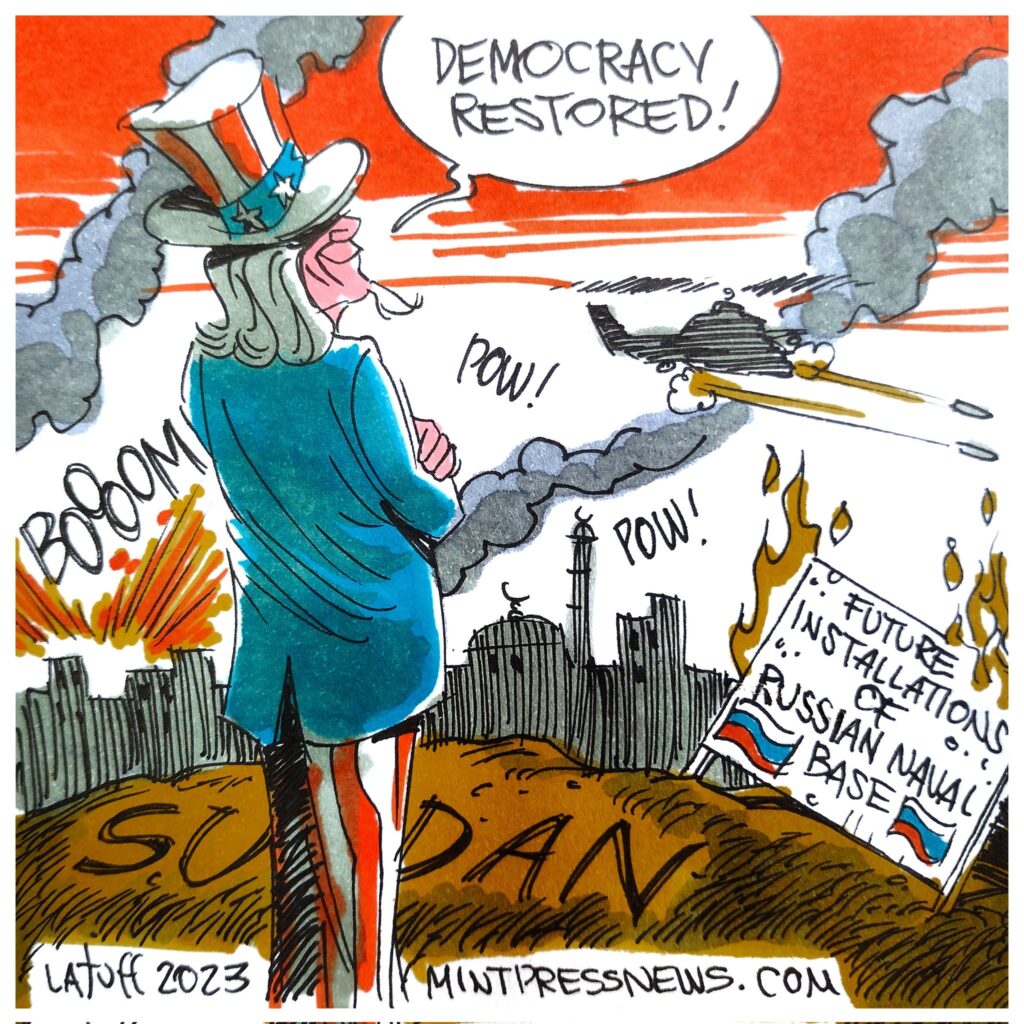
Arab League communication initiative
Arab ministers of foreign affairs held a consultative meeting on Sunday in preparation for the emergency meeting to discuss the crisis in Sudan and the return of Syria to the Arab League.
The meeting issued a draft decision to form a contact group to work on resolving the Sudan crisis and reach a settlement between the warring parties.
The contact group will be a ministerial committee that includes Saudi Arabian and Egyptian foreign ministers and the League’s secretary-general and aims to undertake communication with the Sudanese parties and with other influential countries in the region.
The aim is to support both parties in reaching a complete and sustainable ceasefire.
Nevertheless, the Arab League stressed the necessity to fully respect Sudan’s sovereignty and territorial integrity in a press conference after the meeting on Sunday. The league reaffirmed its intention not to interfere in Sudan’s internal affairs to preserve the Sudanese state institutions and prevent their collapse.
The Arab League previously encouraged the Sudanese to reach an agreement “away from international interference” as well.
Call for intervention
The Arab League announced that Secretary-General Ahmed Aboul Gheit received a letter from civilian signatories to the Framework Agreement in which they urged the Arab League to intervene to stop the fighting in Sudan.
The spokesperson for the Secretary-General, Jamal Rushdi, said that the Sudanese groups asked Aboul Gheit to make it his main priority to convince the commanders of the army and the RSF to stop the fighting.
The civilian groups explained that the league’s rejection of external interference in Sudan contributes to further igniting or expanding the war.
IGAD
The Intergovernmental Authority on Development (IGAD) said yesterday that it is closely following the ceasefire talks between representatives of the Sudanese army and the RSF that began in Jeddah this weekend.
The eastern African coalition urged the two sides to seize the opportunity of face-to-face talks to silence the guns.
IGAD called on the two parties to agree to an immediate and unconditional cease-fire for humanitarian reasons, to allow the civilian population and families to access protection, safe passages for movement, and health care services and to meet their food needs.
In late April, IGAD launched an initiative to mediate between the two parties to the conflict and had planned to send a high-level peace mission to Khartoum, including the presidents of South Sudan, Kenya and Djibouti, to urge the two sides to agree on a ceasefire.
Several other countries have proposed mediation initiatives in the hope to get the warring parties to sit around a table and engage in dialogue. Local mediation efforts and negotiation initiatives to contain the crisis between the SAF and RSF essentially came to a halt as the warring parties refused to communicate.








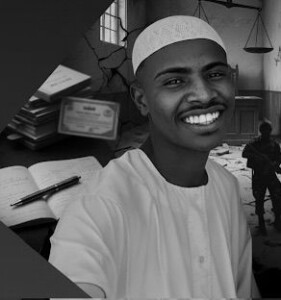
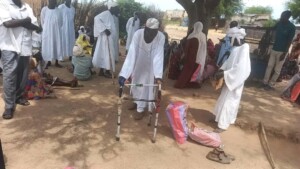

 and then
and then